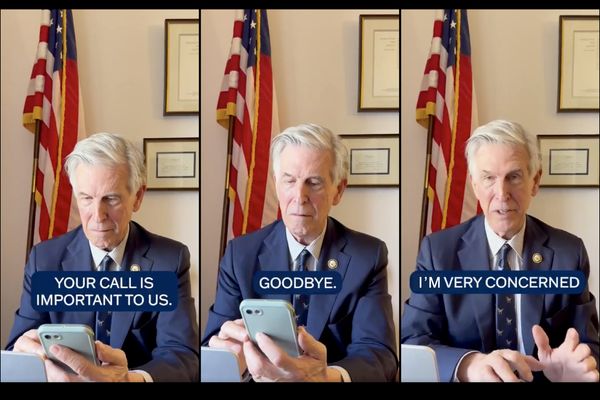All coronavirus laws in England including the legal requirement for people who test positive to isolate will end on Thursday.
On Monday, Prime Minister Boris Johnson set out the strategy for “living with Covid”, which also includes plans to scrap free universal testing in April.
Those who receive a positive Covid-19 test will still be advised to stay at home for at least five days, but from today will not be obliged to under law.
An Ipsos survey of 1,018 people aged 16-75 found that 46% of those polled believe that the Government is relaxing coronavirus restrictions too quickly, while 39% believe it is about the right time.
The survey found that 49% of people do not support the end of legal self-isolation for those testing positive for Covid, while 33% of those polled do support the end of the legal requirement.
Almost four in 10 Britons surveyed said it is likely they will go to the shops (37%) even if they have tested positive for Covid, and the same proportion of workers feel they would go into work if they were positive.
The survey found that 24% said it is likely they would travel on public transport if they had tested positive, while 20% said they would visit elderly relatives.
More than half of those polled (52%) said it is likely that they would go for a walk outside if they had tested positive for the virus.
Just 29% of those surveyed support the decision to no longer provide free Covid-19 test kits.
Keiran Pedley, at Ipsos, said: “While the public are divided on whether or not this is the right time for the Government to relax Covid-19 restrictions, it’s clear that the decision to stop providing free Covid-19 tests to anyone who requests them is not a popular one.
“It is notable that British workers are split on whether they would go into work even after testing positive which may have implications for plans to get people back into offices.”
Routine contact tracing will also end on Thursday, as will the £500 self-isolation payments and the legal obligation for individuals to tell their employers about their requirement to isolate.
Changes to statutory sick pay and employment support allowance designed to help people through the coronavirus pandemic will end on March 24.
People aged 75 and over, the immunosuppressed and those living in care homes will be offered another Covid-19 booster vaccine this spring under the plans.
Free universal testing will be massively scaled back from April 1 and will instead be focused on the most vulnerable, with the UK Health Security Agency set to determine the details, while asymptomatic testing will continue for social care staff.
On Monday, England’s chief medical officer Professor Sir Chris Whitty said people should still isolate if they have Covid-19 despite the legal requirement ending.
He said it is “standard public health advice” as he warned that while rates are coming down it is “still a very common infection”.
Mr Johnson acknowledged there is likely to be another variant that will “cause us trouble”, saying he did not want people to think “there’s some division between the gung ho politicians and the cautious, anxious scientists”.
He said: “The most important thing is that – and I hope this is the big take-out from this – the sun is shining but we’re keeping our umbrella.”
But the British Medical Association warned that the “living with Covid” strategy “fails to protect those at highest risk of harm from Covid-19, and neglects some of the most vulnerable people in society”.
Groups representing vulnerable individuals also sounded the alarm over the end to isolation laws, with the Scope disability equality charity saying it would usher in a life “living with fear”.
Blood Cancer UK warned that the plan “will cause huge anxiety among immunocompromised people and leave many of them feeling abandoned”, while the MS Society said the scrapping of free universal testing is “not only reckless but dangerous”.
Meanwhile, public transport users in London will no longer be required to wear face masks from Thursday.
Transport for London announced that face coverings will stop being a condition of carriage following the “shift in the Government’s approach” towards living with coronavirus.
It added that “decreasing infection rates in London” were also a factor in its decision.
What are the coronavirus rules in the four UK nations?
- England
Boris Johnson delivered his vision for living with coronavirus, including an end to mandatory self-isolation and universal free tests for the general public in England, on Monday.
The Government’s Living with Covid plan sets out the legal obligation to self-isolate following a positive coronavirus test will be axed as of Thursday.
The official public health advice will remain that both adults and children testing positive for the virus should stay at home for five days, but this will not be enforced by law.
The Government will also no longer ask vaccinated contacts, and those under 18, to test for seven days, and will remove the legal requirement for contacts who are not vaccinated to self-isolate.
Free universal symptomatic and asymptomatic testing will also end for the general public in England from April 1.
Remaining symptomatic testing will be focused on the most vulnerable, with the UK Health Security Agency (UKHSA) set to determine the details.
Also from Thursday, public transport users in London will no longer be required to wear face masks.
Transport for London (TfL) announced that face coverings will stop being a condition of carriage following the “shift in the Government’s approach” towards living with coronavirus.
– Scotland
Scotland’s mandatory coronavirus vaccine passport scheme is to be scrapped from Monday, First Minister Nicola Sturgeon announced this week.
She said this will happen assuming “no significant adverse developments” in the fight against the virus occur.
The scheme had required Scots to show their vaccination status before entering a nightclub or attending a large event.
While the legal requirement to wear masks in some settings including on public transport and in indoor venues are to be dropped from March 21, the Scottish Government will still “strongly recommend” people continue to use them.
Ms Sturgeon made clear the Scottish Government would “continue to ask those who test positive for Covid to isolate for the recommended period”.
The requirement for businesses to retain customer contact details in case this is needed for contact tracing is also expected to end on March 21.
Ms Sturgeon also highlighted her “frustration at the position of the UK Government” on free testing and said the Scottish Government will look to continue providing free lateral flow tests longer-term.
In a change of stance, the Scottish Government is now advising people to do a lateral flow test twice a week – moving back from the position where the public were asked to do a test before meeting with other people.
– Wales
Wales is expected to announce longer-term plans for living with Covid alongside the outcome of its latest review of regulations on March 4.
Since January 28, the country has been in Coronavirus Alert Level 0, meaning most of the rules on socialising have ended.
On February 18, the Government also scrapped the requirement to show the NHS Covid pass to go to indoor and outdoor events and venues like cinemas, theatres and nightclubs.
Face masks are still a legal requirement on public transport and in some indoor places, such as shops, GP surgeries, hospitals and care homes.
Welsh First Minister Mark Drakeford also said before Boris Johnson’s announcement on Monday that it would be “premature and reckless” to wind back the testing programme.
There are no formal plans to end self-isolation rules following a positive test in Wales.
However, Welsh economy minister Vaughan Gething previously said it was possible all Covid restrictions in the country could be lifted by the end of March.
A Welsh Government spokesperson said: “Self-isolation has played an important role in breaking the chains of transmission of the virus and it continues to be part of our response to managing the pandemic.
“We will be announcing our longer term plans alongside the outcome of our next 21-day review of regulations on 4 March.”
– Northern Ireland
Northern Ireland’s Health Minister Robin Swann has said his department will “carefully consider” the Living With Covid plan unveiled in England.
Reacting to Boris Johnson’s announcement on Monday, Mr Swann said no decisions have been taken on any changes to test and trace in the region.
He did however say the programme would remain “under review to ensure it remains proportionate and effective”.
Mr Swann said: “Any policy changes will be informed by the latest clinical and scientific advice and consideration of the Covid situation in Northern Ireland.”
Coronavirus legal restrictions in Northern Ireland have already been replaced with guidance.
Mr Swann revoked the rules on February 15, meaning people no longer need to wear face masks in public settings or show Covid certificates to gain entry to venues.
While the curbs were removed from law, they are being kept as official guidance.
Self-isolation guidance on infection has not changed and neither has the Executive’s “work from home where possible” message.
For more stories from where you live, visit InYourArea.







